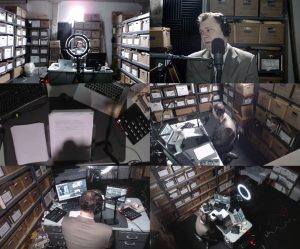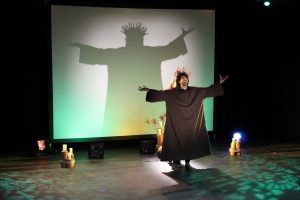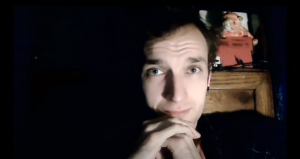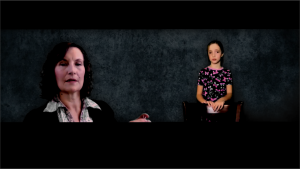
At some point during the outstanding live stream performance of Franz Kafka’s Letter To My Father, yet another reference began swirling in my mind. Lyrics from an old song from the late 1970’s band Split Enz bizarrely came into focus. “History never repeats / I tell myself before I go to sleep / There’s a light shining in the dark / Leading me on towards a change of heart, ah.” Both that song and Kafka’s writing explore an anguished mental condition as a result of bitter relationships.
“Don’t say the words you might regret / I lost before, you know I can’t forget.” Why did this song pull from the filing cabinet of memory? Kafka’s gut wrenching analysis of his relationship with his father and his obsession with the details from their past seem like thematic cousins. Early on in this story things are obviously tense as “we are both much too old there could yet be a sort of peace, not an end to your unrelenting reproaches, but at least a mitigation of them.” If history never repeats then why have generations upon generations of experiential patriarchal repressiveness informed the creative mind to spectacularly effect?
Kafka attempts to gut punch in this letter he wrote to his father but was never received. With such a wonderful writer, the excoriation is both complex and vividly written. Through this work a man is conjured back to life. “The rhetorical devices you used in bringing me up, which were extremely effective, and at least in my case never failed, included: insults, threats, irony, spiteful laughter and – strangely -self-pity.” The fact that this type of father-ruler still exists today makes the work relevant and perhaps even oddly therapeutic.
Personal references continued to stream into my mind. There is a section where Kafka writes that his father’s behavior is enigmatic like all tyrants. You will be hard pressed not to think of Donald Trump while absorbing those descriptors. The piece also works as a metaphor for business relationships. Different people respond to different motivators. Some thrive under dictators, others wither and their desire for success and happiness remains unfilled. In the hands of an uber talented and contemplative writer, the result can be quite dazzlingly dark.
There is a reason some boys gravitate to football and others to Ru Paul’s Drag Race. What Kafka is positing is that his existence would be far less tormented had he not been who he was, a “heady” child with an ability to store a vast amount of data in his mind. His grievances are numerous and, brilliantly, even pointed inward. I absolutely loved this letter.
The setting (Oona Curley and Stacey DeRosier) nominally appears to be a storage area in an office-like environment filled with boxes and boxes of filed documents. The room really functioned as the inside brain apparatus of Kafka himself. (Another reference came to mind: Matt Ruff’s novel Set This House on Fire.) When narrator Michael Guagno walks over to a shelf, you know he’s reaching in to pull out another memory, yet another trauma safely stored, sadly protected and never forgotten.
Mr. Guagno’s reading is akin to an excellent audiobook performance. Being able to be claustrophobic in this space with him adds to the entire experience. James Rutherford’s direction nicely varies the camera angles and provides for movement, emphasis and, especially, periods of quiet. I sat enraptured by the storytelling and frankly amazed what it produced in my own mind.
Technically, this live stream succeeds on all creative levels including lighting, sound and music. The audience has the ability to change views throughout. I found the one I preferred early on and stuck with it. I wanted to concentrate on the words and hear the brutal, guttural angst. Frank Kafka’s Letter To My Father is unforgettably raw and riveting. Watch this version alone and see what history your mind repeats.
M-34’s live streaming of Franz Kafka’s Letter To My Father is running on Friday nights and Sunday afternoons through March 28, 2021.










You must be logged in to post a comment.